Venezuela recession confirmed as Maduro attacks US 'oil war'
- Published
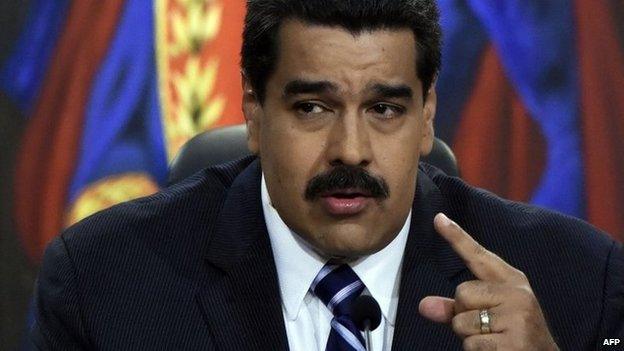
Mr Maduro accused opposition forces of sabotaging the Venezuelan economy
The Venezuelan economy is now officially in recession after the central bank released figures showing that it has been shrinking all year.
The bank said the economy had declined by 2.3% in the third quarter of 2014.
It also revealed for the first time that GDP contracted by 4.8% and 4.9% respectively in the first and the second quarters of 2014.
President Nicolas Maduro said the economy had been hit by political instability and falling oil prices.
He accused the United States of flooding the markets with oil as part of an economic war against Russia.
The central bank also said inflation had reached 63.6% in the 12 months to November, one of the highest rates in the world.
Mr Maduro announced a number of measures to boost economic growth and control inflation, including reforms to Venezuela's currency control system.
"The details will be extensively explained after the New Year's greeting," Mr Maduro told reporters.
'Anti-Opec plan'
Mr Maduro said speculation had affected inflation but he also praised government efforts to rein in the increases.
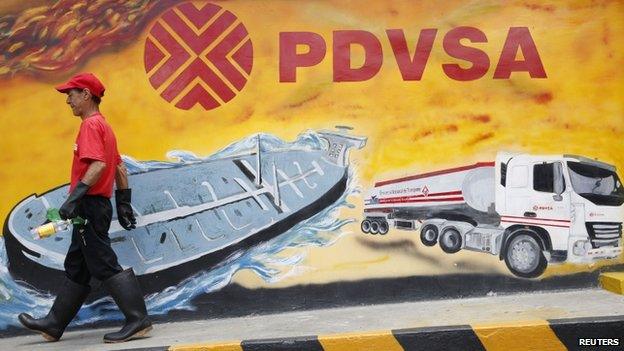
State-owned company PDVSA was founded in 1976, when the Venezuelan oil industry was nationalised
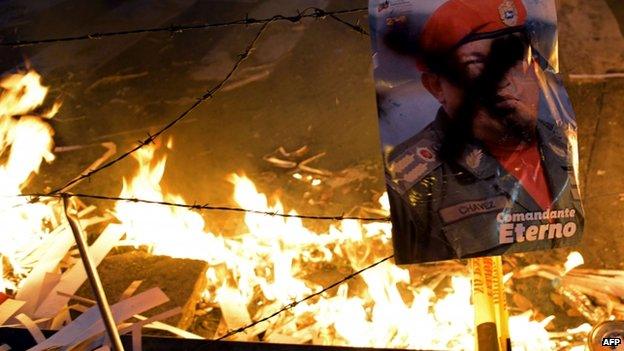
Venezuela was shaken by months of anti-government protests in the first half of 2014
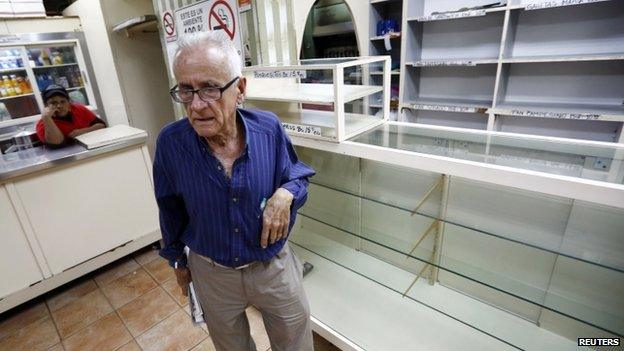
Shortages of basic staples such as bread have angered shoppers
He said his country was suffering the consequences of an economic war launched by US President Barack Obama "to destroy" the oil producers' cartel, Opec.
"It is a two-year plan, which is affecting the prices of commodities and many developing economies," Mr Maduro said.
"The US wants to impose a unipolar world controlled from Washington. That is madness."
The crisis offered a "great opportunity for Venezuela to change its economic model," the president added.
Venezuela has the world's largest proven oil reserves, with its economy highly dependent on oil exports.
The Venezuelan opposition blames the socialist policies of Mr Maduro and his late predecessor, Hugo Chavez, for a shortage of many staples, such as corn oil and milk, amid a serious economic crisis.
- Published30 December 2014
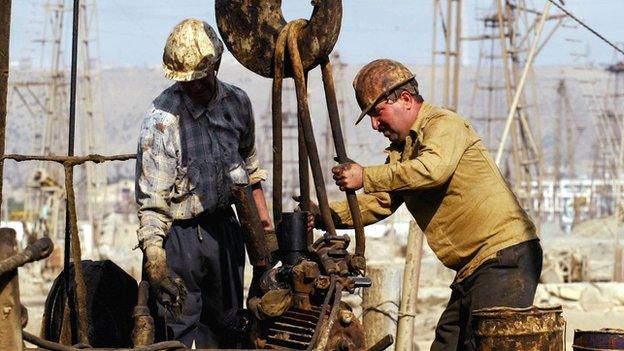
- Published18 December 2014
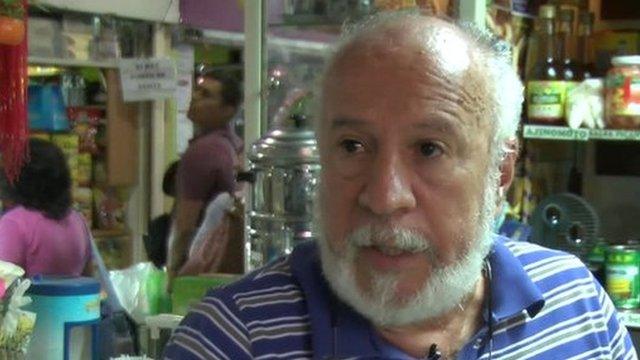
- Published18 December 2014
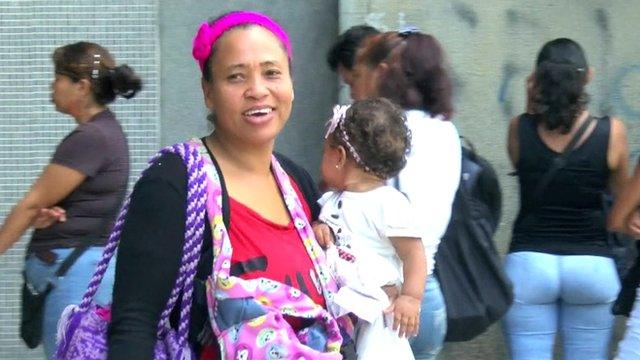
- Published16 January 2014
